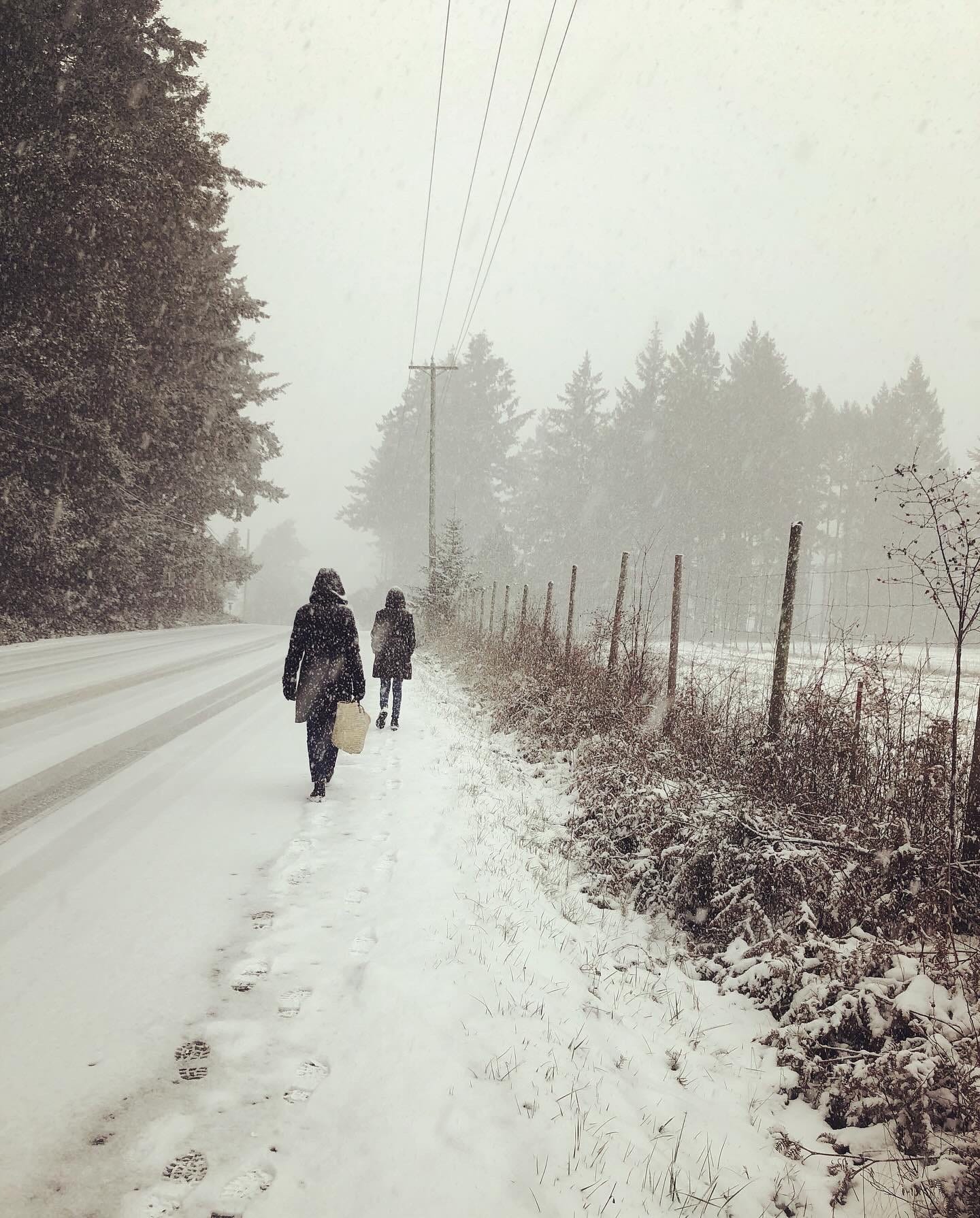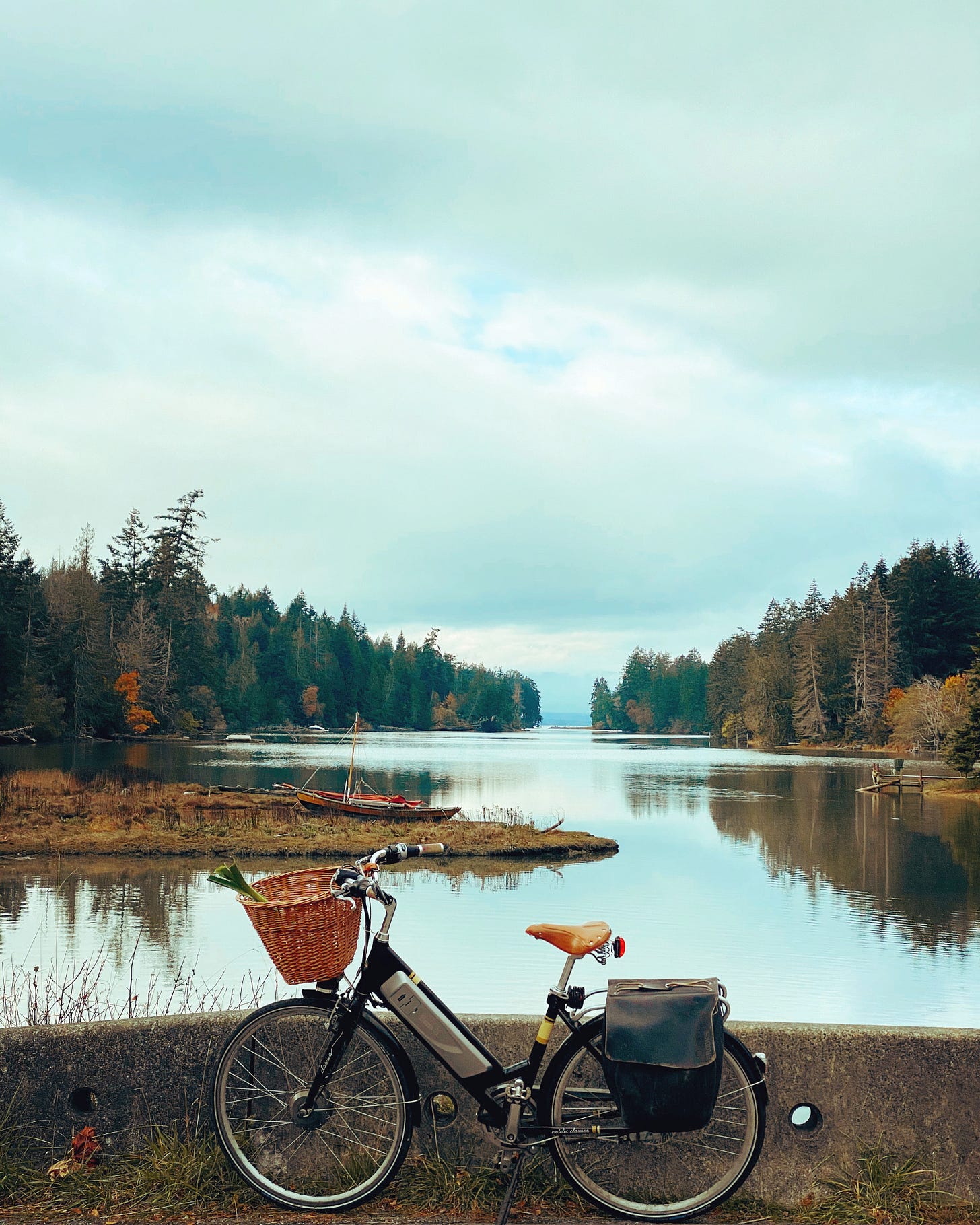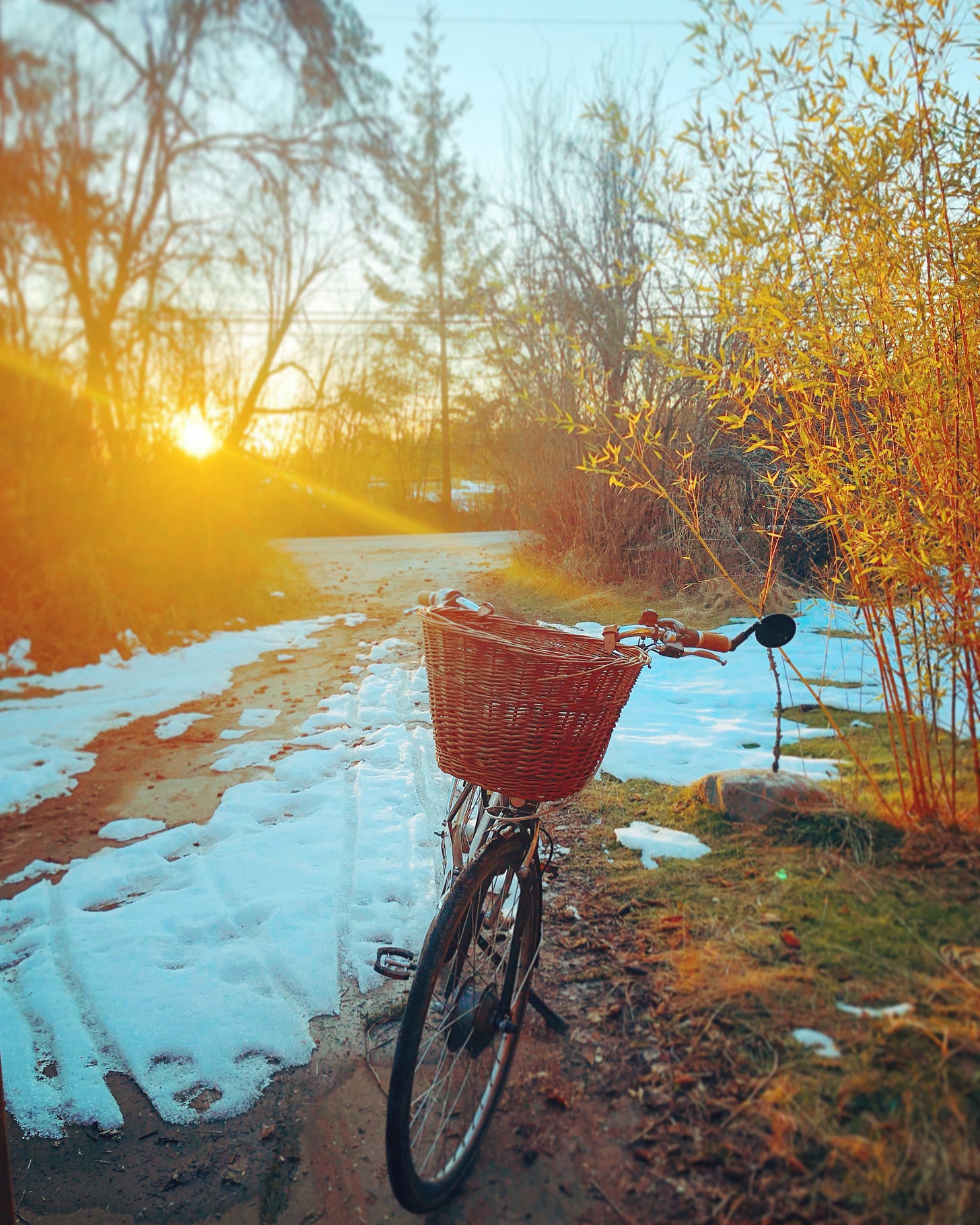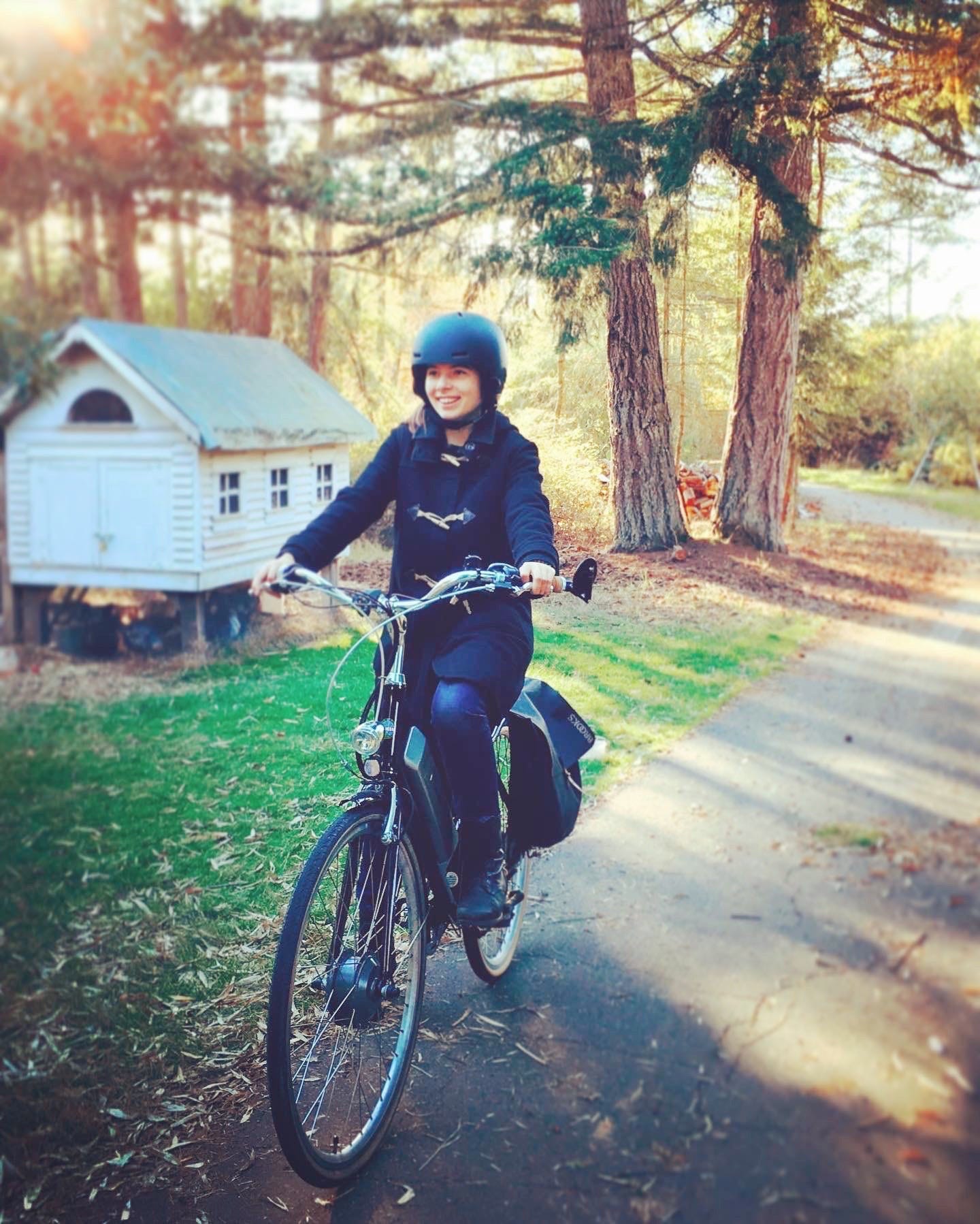in living without a car these seven years, just a handful of days resemble this one, walking home in stormy weather. usually we run errands by electric bicycle, and as we live slowly and simply, it’s been easy to plan around rainy days and icy ones.
the bus goes by now and again. before the plague, hitchhiking was embedded in this island culture, an informal car-share, and it’s reviving. we make friends; they help see us through. renting a hybrid, taking a cab is useful on rare occasions but we spend far less than we ever did on fuel. sometimes we call on a neighbour who might be going anyway, and widen our asking-for-help tolerance. they feel more free to ask us back. some friends just call us from the grocer, to ask what we need and double the effectiveness of their trip. many inquire if we need a ride. folks tell us they feel good about sharing that energy. the collaborations are culturing.
the trick is to go ahead and live it. if more of us ride our bikes we make visible demand for lanes. if more of us walk, we live the case for roadside paths and slower speed-limits. early adopters lay the path for another future. we culture the culture in another pattern.
a state of ecological emergency requires a more creative response to getting around than continuing to burn fossil fuels, than even the private electric car.
in moving toward carlessness, we began to experiment. we asked, how else can we move ourselves and our belongings around?
so. we can consolidate errands, carpool or combine shopping with friends. add a trailer to the electric bike, invest in panniers, cycle as a family to stock up. use buses, foot-ferries, trains. join a carshare, rent a vehicle when necessary. have fun at home and nearby. treat travel as a luxury. walk more, cycle further.
we can shop less often by stocking up on storage crops and staples, preserving and fermenting food. grow more food, year-round. mill grain. work online. buy less. host visitors longer, less often. find local health practitioners, buy local products, ask local shops to carry what we need, ask local farmers to grow what we eat.
we match clothing to the weather, go out in any temperature. explore the island. take our time. enjoy the journey.
in a rushed world, without owning a car we are slowed to a human pace, and we thrive for living within the limits.
in these seven years, not having the costs of running a vehicle has meant that we had funds to buy better food. that the cost of housing has pinched a little less. that unschooling kids was more affordable. that running a business in chaotic times had a buffer. recently, it’s meant that single-parenting while running a farm is even viable. the savings have saved us.
not having a car has made us more fit and it has made us more connected. smelling the air and seeing the sights with great immediacy. as open to the world as we are vulnerable to it. keenly aware of our interdependence. more practiced in community. more present.
not owning a car has made us more ready for a future that fits within the limits of our bioregion.
it means that when we help to advocate for safe cycling and relocalised ways of living, our leaders listen up. they need to know that the votes are behind them, so we vote with our actions. when we live it, using a bicycle or walking looks vividly like what it is — another way to get about, not just a form of leisure.
it means that buying local is our obvious option, so more of the money we spend circulates through our island, strengthening the community. without a car we’re not leaving to get a deal elsewhere, and in staying, we help make what’s here a better deal.
it’s now well documented that cycling tourism brings more money to local businesses and the best spot for a brick and mortar is near a bike lane. and how we long for more bike lanes! the mutuality is compelling.
in moving towards shared and active transportation as a model for a flourishing future, we asked:
if we treat fossil fuels as staggeringly precious, how do we need to alter the way we live?
how would we design our villages?
how far are we willing to be from dear ones?
what errands are worthy, what events? how busy do we want to be?
how can we become inventive, looking for other ways to see friends or achieve a task?
how willing are we to ask for help?
how can we plan events so that carpooling and transit are the norm?
how can we function collaboratively, in community, in interdependence?
how do we need to alter so that our identity is independent of our means of getting about? not a driver, nor an owner of a certain vehicle, not even a passenger, but just a person getting from place to place?
what is our rite of passage into adulthood if it is no longer driving?
how might we change our patterns, knowing that our choices matter?
this is how our vision of normal can shift. first individually, then collectively,
through the small work
of altering our
daily patterns.
this small work exists thanks to the appleturnover supporters. you smooth the path beneath my bicycle. thank you for taking a chance on another way of being. i’d love to hear how you’re shifting your sense of normal these days.









I've never driven, and moved to an area 4 years ago that's notorious for 'needing a car'. When I relocated and bought my flat, I assumed I would have to get over my hatred of driving and get a car like everyone else. However, I also thought long and hard about the flat's location to avoid driving as much as possible: walking distance to a train station, bus stop, and the town centre, yes please. I also got an e-bike and while I'm still nervous of riding it on roads, it's given me so much freedom and adventure. I've definitely benefited from having family nearby who drive (and now my partner, who lives with me and needs a van for his business), but I probably car-share once a week or less. I love not needing to drive, and now have no intention of ever getting my own car!
"the trick is to go ahead and live it." Great advice and another reminder that building a better tomorrow is about so many small practical steps and much less about grand poltical visions. Thank you for the inspirations.